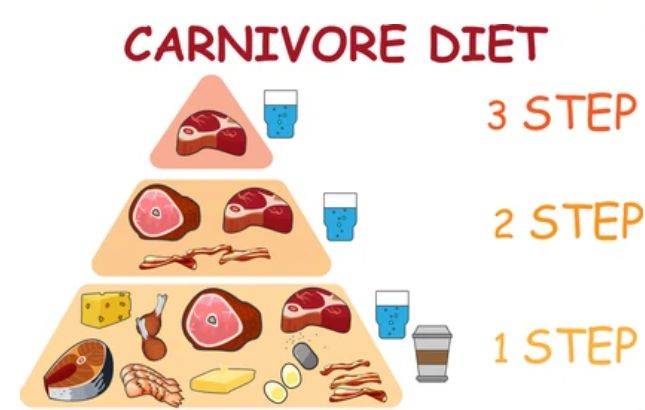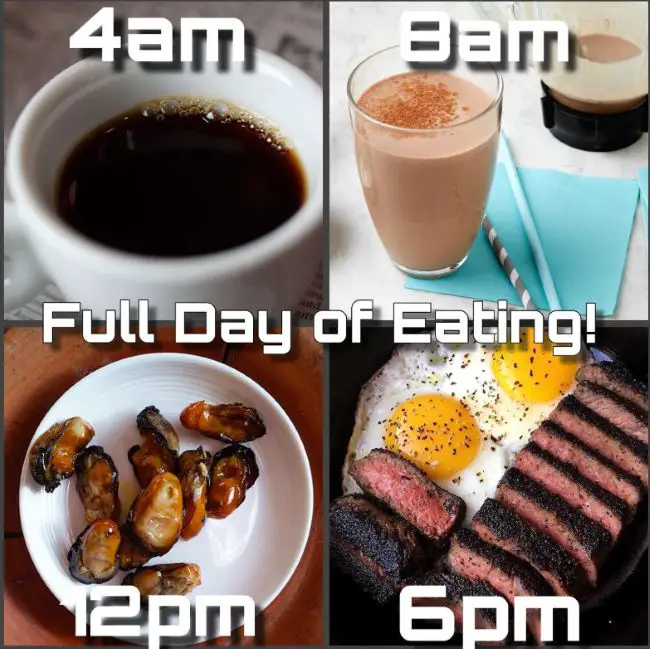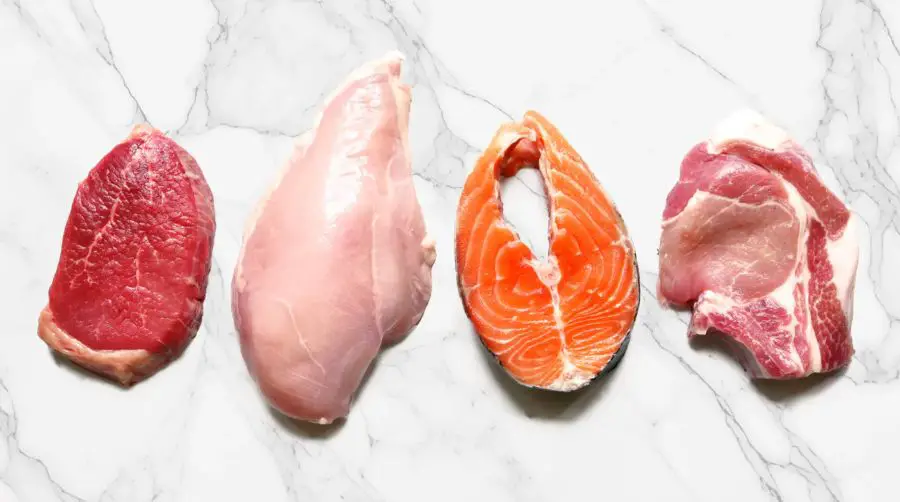In the world of nutrition trends, few eating behaviors have garnered the attention that the carnivore diet has. At its simplest, the carnivore diet consists of only animal-based foods, which is often considered a very extreme diet. However, within the carnivore diet community, many people engage in yet another extreme nutritional practice: fasting.

Naturally, fasting on a carnivore diet can sound daunting. After all, the carnivore diet is already restrictive. Regardless, many people find that fasting while on a carnivore diet can provide strong synergistic benefits, including increased energy, better digestion, weight loss, and potentially even improved mental clarity. In this post, we will discuss what fasting looks and feels like on a carnivore diet, why people do it, potential benefits, and how to implement a fasting protocol safely.
What Is Fasting on the Carnivore Diet?
Before we discuss fasting, let us recap. The carnivore diet consists of all animal foods, including beef, lamb, chicken, pork, fish, eggs, and even some dairy products like butter, or cheese. It eliminates all plants, grains, legumes, fruits, and even most seasonings.
The idea is to simplify eating, decrease inflammation, and provide only nutrient-dense animal-based products for the body to thrive. Most individuals report weight loss, more leveled blood sugar levels, along with a reduction or elimination of bloating or some autoimmune symptoms.
Now, taking that approach and layering fasting on top of it creates a unique metabolic environment in which the body will really thrive on fat as energy.
What Does Fasting Mean on a Carnivore Diet?
Fasting doesn’t mean starving yourself – it simply means going a period without food. The two most frequent types of people fasting with carnivore eating are:

- Intermittent Fasting (IF): Eating within a timeframe, say 16 hours fasting and an 8-hour eating window.
- Extended Fasting: Going 24 hours or 36 hours, or even 48 hours without eating food, although this would require more caution.
Since you’re already low-carb with the carnivore diet, your body immediately goes into fat-burning (ketosis), making fasting easier than a regular diet, because fat and protein are satiating. Many people also report that they feel hungry less frequently and less intensely.
Why Consider Fasting on a Carnivore Diet for Health Benefits?
So, why put the two together? Here are some of the biggest reasons:

1. Weight Loss and Fat Burning
Carnivore eating has lower insulin spikes, while fasting lengthens that effect. With a lower level of insulin, your body utilizes your stores of fat for energy more efficiently than when consuming carbohydrate energy.
2. Digestive Break
Consuming meat only can be quite heavy on digestion, especially for those starting. Fasting gives your gut a break and, therefore, may relieve bloating and any discomfort.
3. Improved Mental Clarity
Many people have reported sharper focus and less “brain fog.” When you are fueled by ketones from fat instead of glucose from carbohydrates, the brain receives a continual supply of energy.
4. Simplicity and Food Freedom
Simplicity and Food Freedom. One of the often overlooked advantages of fasting while on a carnivore diet is how simple life becomes. Fewer meals, fewer choices, less cooking time—it’s eating simplified.
5. Autophagy and Healing
Autophagy and Healing. Extended fasting can also support autophagy, which is the natural process by which damaged cells are discarded by the body. This can happen when fasting, it’s essentially a cellular cleanup event. The anti-inflammatory effect of a carnivore diet plus fasting can help the body in terms of healing and increased longevity.
Challenges of Fasting on a Carnivore Diet Explained
So, it’s not all roses. Here are a few challenges to be aware of:
- Electrolyte Deficiency: In a carnivore diet, you may run out of sodium, magnesium, and potassium because there are no plant foods. Fasting can exacerbate this situation. You may need to supplement or salt your food.
- Energy Levels: Many people report feeling energized. But some may feel tired, especially during the adjustment period.
- Social Circumstances: Not eating meals or eating only meat can make going out and social eating difficult.
- Potential for Over-Restriction: In the case of combining fasting with a carnivore diet, there is a chance of not eating enough overall. Under eating may reduce metabolism and leave out nutrients important for maintaining a healthy body.
How to Safely Fast on a Carnivore Diet
If you’d like to experiment, below are a few points to keep in mind when trying to get started:

1. Start with Intermittent Fasting
You don’t have to jump right into long fasts. For starters, fast for 12-14 hours overnight and extend the duration when you feel ready.
2. Focus on Nutrient-Dense Animal Foods
When you eat, eat high-quality foods: fatty cuts of beef, salmon, organ meats, eggs, and bone broth. These foods will provide the vitamins, minerals, and healthy fats you need to support longer fasting windows.
3. Stay Hydrated
Be sure to drink plenty of water and think about including electrolytes. Some carnivore fasters prefer to drink salted water or consume bone broth, which can help keep their balance.
4. Listen to Your Body
If you just feel weak, dizzy, or overly fatigued, maybe it is time to break your fast. The goal of fasting is to create health, not to harm it.
5. Don’t Be Afraid of Fat
Fat is your friend here. Eating fatty cuts helps extend satiety and make fasting a bit easier. Lean meats alone won’t keep you satisfied long, and fasting will be much harder.
6. Use Coffee or Tea as a Contrived Strict
While strict carnivores do not consume plants at all, many of those who fasted on a modified carnivore diet still started or broke their fast with black coffee or plain tea. Both are appetite suppressants and make fasting easier.
What Is a Day Like?
Here’s an example of the fasting component of a carnivore diet for someone who is engaging in intermittent fasting 16:8.

- Morning (Fast): Water, black coffee, or tea.
- Midday Meal: Ribeye steak, butter, and eggs.
- Afternoon Snack: Sardines or beef jerky (may or may not happen).
- Evening Meal: Salmon fillet with bone marrow.
- Night: Empty (maintain the fast until tomorrow).
Following this simple routine helps keep meals fulfilling while also extending the days between your meals.
Who Should Use Caution with Fasting on a Carnivore Diet?
Not everyone is advised to do their fasting in conjunction with carnivore eating. Those who should be hesitant (or check with a doctor first) include:
- Pregnant or lactating mothers
- People with a history of disordered eating
- Anyone with any health concerns (especially diabetes)
- Athletes with high energy expenditures
Your health always takes precedence – fasting is a tool, not a mandate.
Final Thoughts
Fasting while eating a carnivore diet is not about hurting yourself or severely restricting yourself. It is about working with your body’s natural rhythms and nourishing it with highly nutrient-dense foods. For many people, a carnivore diet combined with fasting has helped them experience weight loss, mental clarity and simplified their food consumption.
But it is not for everyone. Some people prefer eating 1-2 substantial carnivore meals per day with no extended fasting. Others enjoy the mental and physical benefits of extending their fasting window and reaping those benefits.
If you are interested in trying fasting, go slowly, listen to your body, and focus on quality foods during the eating periods. With moderation and consideration, fasting while eating a carnivore diet can be a great way to support your health and your lifestyle.


